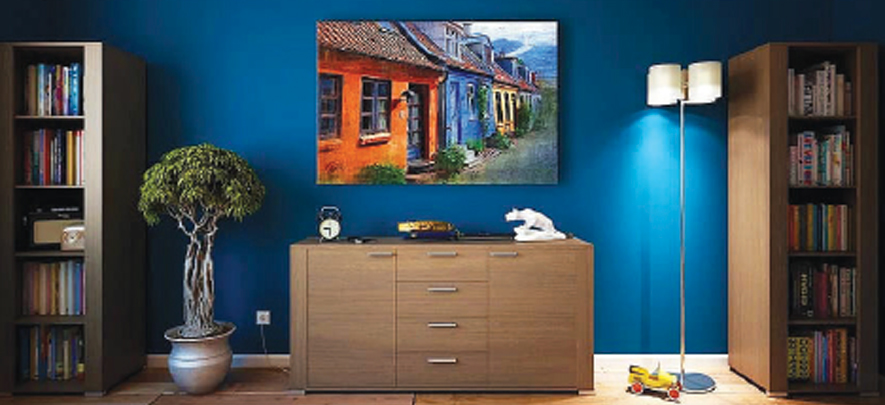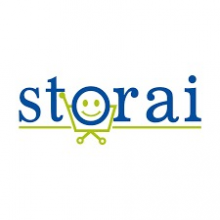Colour and consumer trends: The Inspired Home Show 2020

Retail
228 week ago — 11 min read
After The Inspired Home Show, 2020 (formerly the International Home + Housewares Show) was cancelled due to concerns surrounding the spread of COVID-19, Tom Mirabile, principal and founder of Springboard Futures & consumer trend forecaster for the International Housewares Association (IHA), and Leatrice Eiseman, executive director of the Pantone Colour Institute & colour expert for the International Housewares Association (IHA) shared the consumer and lifestyle insights they were set to share in keynote sessions at the Show. This article is a look at some of the key insights from their presentations.
The key to attracting consumers’ eyes in the coming years is through combining colours in new and unexpected ways.
Complex consumers
Consumers have never been more diverse, demanding or complex. But why is today’s consumer landscape so complex? We have four distinctly different generations with totally different desires and expectations making significant impacts.
“Many people have embedded perceptions of different generations,” said Mirabile. “We tend to anchor economic power in terms of money, but a lot of that has really changed. There’s affluence, and then there’s influence. In truth, influence is likely the greater strength because it can spread so quickly across economic and social strata and affect consumer opinion and spending.”
Talking demographics
Take for instance Generation Z–generally described as those between ages 8 to 21. Certainly, that generation doesn’t have a lot of buying power, but 93% of parents with Gen Z kids say those kids influence what they buy at home, according to digital agency Deep Focus.
“Now that doesn’t mean you should market to kids, but you should acknowledge that kids are part of the decision-making process,” remarked Mirabile.
“Generation X is largely overlooked right now”, he adds. “But that generation currently represents 29% of all discretionary income; a number poised to grow significantly in the next decade as their wages grow and they stand to inherit money from parents.
“The Millennial generation has already established its influence over everything from e-commerce and marketing to social responsibility and transparency. Now they’re also starting to exhibit the financial clout we knew they’d have one day.”
“Statistics can deliver important insight, no question,” he stated. “Still, the best strategies are rooted in a commitment to stay tethered to one or more fundamental consumer realities and aspirations. It’s crucial to keep these universal trends in mind, because while intangible, they consistently drive consumer demand, regardless of generation or socioeconomic status.”
The COVID effect
Predictions by Tom Mirabile, principal and founder of Springboard Futures & consumer trend forecaster for the International Housewares Association (IHA) ...
For those who really watch and listen to consumers, there are going to be some incredible new opportunities.
The pandemic will propel the already-developing virtual office trend and consumers’ ability to work from home, as well as the enhanced need for products that help us monitor and care for our health from home. Any home products that help enhance consumers’ feelings of comfort and security should also farewell.
Home has assumed many identities over the past few decades; it has been a showplace and a social hub, a cocoon and a creative studio. It’s played the role of office space and marketplace. It’s lived through ‘own your own,’ ‘grow your own,’ ‘make your own’ and ‘sell your own.’ Next up: Home as Family Fortress.
Also read: What Covid-19 has taught us
Fodder for marketers
- Generation Z actually prefers in-store shopping to online shopping, thanks in part to new experiential elements retailers have recently added. That’s what they’ve grown up with.
- Millennials are in debt, $42,000 on average, according to Northwestern Mutual’s Planning and Progress Study. But only 16% of that debt is from education. They’ve largely spent on travel and lifestyle, feeding their diverse interests and hunger for experience.
- The youngest Boomers will be at the age of retirement in just 10 years; think of the sheer number of people with the ‘senior citizen’ status and what their needs might be
Success through colour
“The key to attracting consumers’ eyes in the coming years is through combining colours in new and unexpected ways”, quoted Leatrice Eiseman, executive director of the Pantone Color Institute & colour expert for the International Housewares Association (IHA).
Speaking about Innovation in the domain of colours, she said, “Innovation is a big buzzword right now. It’s about answering a need for something edgier and, in some cases, irreverent. That’s not to discard the fact that some consumers have a certain comfort level with some colours. You have to honour that by combining those traditional colour favourites with other unexpected colours or in unexpected ways.”
Eiseman looks to several different industries for colour trends and inspiration, including fashion, art, cosmetics, electronics, automobiles, movies and television. She predicts the film industry will become even more significant in the short-term as more people turn to movies as a form of entertainment. “It’s all about the ‘’Trickle-down Effect’: what we see in movies, fashion, art, and more causes people to be more open to a colour, or even to look for it in the marketplace.”
Upcoming design trends
Food & Beverage:
Food is a natural tie-in for housewares and interiors because it’s so integral to our sense of well-being and our very existence. An interesting colour note: Anything with yellow-based colour releases the ‘feel-good’ chemical serotonin in our bodies; think comfort foods from around the world such as macaroni & cheese in the US, dim sum in China and purees in Africa.
Wellness:
This trend keeps getting bigger each year and will certainly flourish in the wake of the COVID-19 pandemic. Soft, familiar hues can convey a sense of calm and comfort, as can Pantone’s 2020 Color of the Year – Classic Blue, which instils ‘calm, confidence and connection.’
Sustainability:
It’s not a new trend, but one that has reached the mainstream. Many consumers around the world are now demanding products and practices that are environmentally friendly and are choosing home environments and colour schemes that reflect this.
Commandments of customer wants
- More Time
- More Space
- More Experiences
- More Health and Wellness
- More Safety and Security
- More Convenience
- More Flexibility/Versatility
- More Reliability/Durability
- More Sustainability
2021 Pantone view home + Interiors palettes
Folkloric:
This palette is Nordic in feel, but it’s really about a new and energized form of folk art. It features deeply saturated authentic colours that look handmade (not like they were made by chemicals) including indigos and fern greens.
Terracotta:
The first palette that’s named after one colour, it features a warm, earthy colour that appeals to people in just about any culture. Though Terracotta is the star, it appears alongside a sliding scale of warm earthy tones but with a few very unexpected colours, like Lilac Sachet, as well.
Composed:
This is the palette that is always necessary for those consumers who are comfortable with neutrals. Here, soft pinks and blues ‘lighten a load of grey’ to combine with hues like Glacier Gray and Granite Gray
Vivify:
The yang to the yin of Composed, Vivify is an eclectic grouping of playful and cheerful colours such as Easter Egg blue and Meadowlark. Black and white are included as well to create a dichotomy of sorts.
Fleur:
Flowers are always an influence on colour, but this palette is not just about a sweet bouquet. It’s ‘a bit sexier’ with its inclusion of some deeper wine or merlot hues, and includes some green for balance.
Quixotic:
This vibrant palette features some closely matched colours but it also reaches across the colour wheel for unique contrasts. Examples: Jade Lime vs Peppery Cayenne; Papaya Punch vs Tranquil Blue Sky.
Polychrome:
This palette is very much about patterning. Architectural details from many countries were an inspiration for using sophisticated colours like Dijon-enriched spicy mustard and Mocha Mousse in patterns.
Synergy:
Blues and blue-greens may always be favoured by some, so this palette uses them to create ‘peaceful, pleasing connections of colour’. Greyed-down versions of blue and blue-green contrast seamlessly with other colours such as greyed-down lilac or mauve.
Galaxies:
Metallics get their day in this palette, which is inspired by the ongoing fascination humans have with the galaxies that lie beyond. What is unique here is that metallics are combined with earthier tones that help ground them.
The International Housewares Association is an 82-year-old not-for-profit, a full-service association that sponsors the world’s premier exposition of products for the home, The Inspired Home Show. The 2021 Show is scheduled for 13-16 March. (TheInspiredHomeShow.com).
Also read: Coping with COVID-19 in the retail sector
To explore business opportunities, link with us by clicking on the 'Invite' button on our eBiz Card.
Article source: STOrai Magazine.
Disclaimer: The views and opinions expressed in this article are those of the author and do not necessarily reflect the views, official policy or position of GlobalLinker.
View STOrai 's profile
SME Inspirations
Other articles written by STOrai Magazine
Enhanced Brand Storytelling in the Digital Age
29 week ago
Most read this week

















Comments
Please login or Register to join the discussion